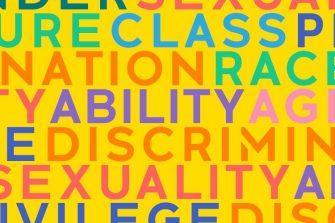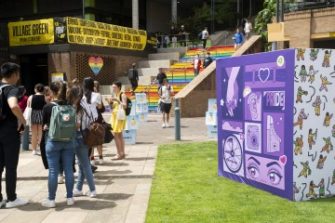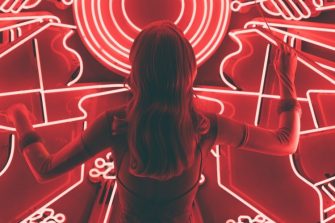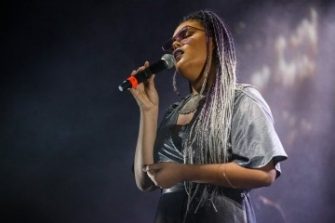Diversity Fest 2019

The inaugural festival featured more than 30 events, including panel discussions, live music performances, film screenings, debates and social get-togethers; each highlighting the many ways diversity and inclusion can enrich and add value to our society.
Discover highlights from UNSW Diversity Fest 2019.
View the Diversity Fest 2019 Program
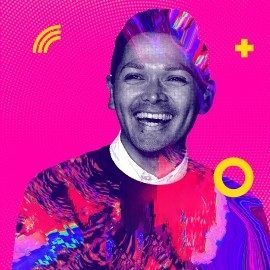
Collins Fleischner
Collins Fleischner
UNSW Staff - he / him / his
"Diversity is about uplifting the voices that have often been unheeded - and valuing these voices equally. It's recognising that our common humanity is strong enough to withstand and is in fact enriched by our differences".
Collins is Filipino-Austrian and moved to Australia at 13 years old. As a ‘gay, brown immigrant’, finding a sense of belonging in Australia hasn’t always been easy. Actions that make someone feel excluded are sometimes overt (such as being bullied in school) or more subtle, such as when people ask Collins - “but where are you really from?” This question is not often asked of white Australians and conveys the notion that to be Australian there is a certain physical criterion - skin colour, facial features - and that people who look different are foreigners.
“If you grew up in Australia or have made a deep connection to this country, you would rightly call Australia home. I believe our values are big enough to welcome people from all cultures.”
Collins believes true diversity isn’t just about filling a quota, but rather uplifting the voices that have often been unheeded – and valuing these voices equally. Since joining UNSW in 2018 as Project Manager for Education Focussed Career Development, Collins has seen firsthand the university’s commitment to fostering inclusivity through actionable policies.
However, Collins says people’s day-to-day behaviour also contributes to shaping a community that values diversity. “I work with colleagues who value diversity but sometimes feel unsure. They worry about saying the ‘wrong thing’. Being inclusive isn’t always about being perfectly politically correct. I think an attitude of openness and willingness to learn is far more important. Learn that hard-to-pronounce name, give minorities the chance to speak up in meetings or back them if they have a great idea, and do your bit to make sure everyone feels appreciated and that they belong to this great community.”
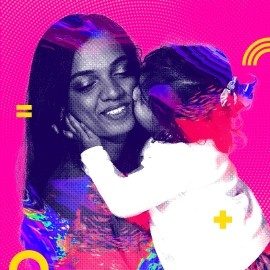
Elakkiya Narayanasamy Ramaraja
Elakkiya Narayanasamy Ramaraja
UNSW Student - she / her
"It's our choice to succeed, mothers can achieve their study goals".
Elakkiya was nervous when she decided to uproot her life, leaving India and her husband, to study a Master of Data Science at UNSW with their 20-month old daughter. Elakkiya was initially anxious by the unfamiliar surroundings and adjusting to Australian culture. Daily tasks such as buying groceries and being the sole carer for baby Deshna were daunting at first.
“I was scared, but I would often tell myself – this is my choice. I am here because this is what I want to do. I am doing this for me.”
Despite the fears she once had, she has now settled into her life in Australia. She credits the adjustment to the support of staff and fellow students at UNSW. “My Professors understand that students may be parents, carers, with commitments outside of university.” Elakkiya was able to sit a 6pm exam at an earlier time, as it would have been impossible to find childcare for Deshna. Friends babysit her daughter during lectures, or when she needs to check up on an experiment. “Everyone on-campus knows Deshna.”
Elakkiya believes the barriers in front of us can be knocked down and is passionate about women recognising their potential to achieve their goals.
“It’s our choice to succeed. Being a mother is not a ‘no’ but rather a moment to think - how can I make this work for me? If I can juggle full-time studies, take care of my daughter and be away from family – anything is possible.”
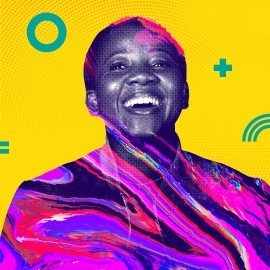
Elizabeth Quarashie
Elizabeth Quarashie
UNSW Student - she / her
"As I couldn't see a single African person online, I almost didn't enrol".
Elizabeth completed her undergraduate degree in Ghana, Africa. Seven years later, with an interest to studying aboard, she started researching Australian universities. She quickly discovered there was an under representation of African students across university websites. “There was not a single image of a black person on the UNSW website.” Worried she would not fit in, she almost gave up the chance to study at UNSW.
“Ghana is an extremely homogenous country. I needed to know I would be safe and have a positive experience studying in Australia.”
Elizabeth gained some confidence seeing students of different ethnicities online, even though she could not see herself. While studying Commerce, Economics and Finance, she has immersed herself in Australia’s multiculturalism; the foods, lifestyles and cultures that are part of mainstream society.
“I hope to inspire other Africans to study overseas and show the international community that Australia can be everyone’s home away from home.”
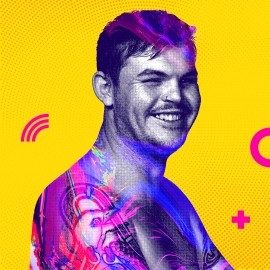
Jake Fing
Jake Fing
UNSW Student - he / him / his
"My Aboriginal identity is often challenged by racial stereotyping".
Jake Fing is tired of the question, “How much Aboriginal are you?” While the question is usually born out of curiosity and not malice, it has discriminatory roots in racial profiling and institutionalised racism. Jake is the Indigenous Officer for the SRC Collective, a single parent and a final year Law/Arts student. Jake’s Caucasian appearance means he is often asked to measure his aboriginality in fractions, and this upsets him.
“In Aboriginal culture we don’t measure it. I am Aboriginal and that’s enough.”
Jake has Indigenous heritage, was raised with First Nation values and has deep relationships with Aboriginal culture. “Nura Gili has had a positive impact on my experience at UNSW.” He wants people to understand what you see on the surface, isn’t always reflective of the full person.
“I feel we need to see each other as complex, and uniquely different human beings – impossible to box or systematically categorise. We can be better humans to each other by being open, accepting and helping others understand our differences.”
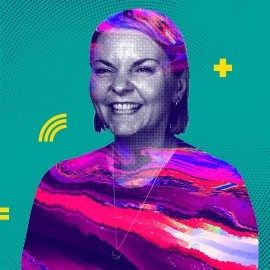
Rebecca Shuptrine
Rebecca Shuptrine
UNSW Staff - she / her
"Society underestimates the valuable contribution and employability of people with disability".
Rebecca was reluctant to disclose her Multiple Sclerosis in previous workplaces. She feared that by disclosing her chronic illness, people would assume she was less capable than her colleagues. She refused to let her physical limitations define her.
“It’s very important to be valued for my professional abilities and not be seen as my disability.”
UNSW is the only workplace where she has openly disclosed her disability. Initially there were mixed reactions. While most of her colleagues were supportive, a few had concerns she would struggle to manage the workload.
“There is an assumption that people with a disability will hinder workplace productivity or be a liability. Through the right support and work culture, people with disabilities can wholly contribute, and bring value to their role. It also reminds us how diverse the human condition really is.”
As Program Manager for the Division of Equity Diversity & Inclusion, Rebecca is developing the Disability Inclusion Action Plan to ensure UNSW can offer a more accessible and inclusive environment for people with disabilities alongside other projects.
“I love my job. I feel lucky to be paving the way for more positive experiences for students and staff including those with disability, and to ensure everyone is seen for who they truly are.”

Sara Talebloo
Sara Talebloo
UNSW Staff - she / her
"Don't immediately assume someone's religion based on their ethnicity. It's time to start having elevated conversations with each other".
The daughter of a Muslim father and Baha’i mother, Sara and her siblings were raised in a harmonious, interfaith family. In her late teens, Sara decided to practice the Baha’i faith – a religion that focuses on the oneness of mankind, removal of all prejudices and equality between women and men.
Sara is a globetrotter who worked in the United Kingdom and Israel, before coming to Australia and working for UNSW in Estate Management. Coming to Australia, she realised many Australians had preconceived notions about the Middle East and do not realise the diverse range of people that live there.
“People often assume I am Muslim because my family are from Iran.”
Yet, the Middle East is full of culture that dates to 3500BC and has a large Zoroastrian, Jewish, Christian and Baha’i population. “Not everyone in the Middle East is Muslim.” This common assumption ignores that religious beliefs and practices – are not bound to the colour of our skin, or cultural heritage.
“I hope to give the wider community courage to ask, rather than assume someone’s religion, gender or sexuality based on the way we look.”
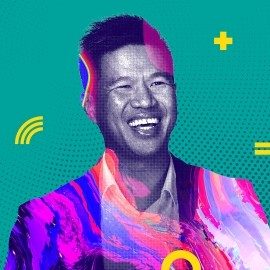
Tony Kage
Tony Kage
UNSW Student - he / him / his
"We all have a unique story to share for anyone who is willing to listen".
Born to Vietnamese immigrants, Tony knows firsthand the importance of creating a sense of belonging and welcome for people from different cultural backgrounds. UNSW Masters student, Tony feels the diverse student community has enriched his learning experience, allowing him to appreciate different perspectives.
“If someone disagrees with you, it doesn’t mean anyone is wrong, they simply view things from a different lens, and have different lived experiences. Keep an open mind and see what you can learn.”
Tony advocates for empathy, understanding and respect. Tony says inclusivity is about embracing people for who they are and trying to be conscious of how your actions may impact the way someone else feels. His top tip? “If you happen to notice someone looking a little left out, try and make first contact and introduce yourself. We all have a unique story to share for anyone who is willing to listen.”

